
In this whitepaper, we invite you to reimagine the depths of adopting innovation not only in times of crisis but as a driver for growth.
Read how key players in Qatar’s ecosystem have embraced innovation within procurement frameworks to lead to the outcomes mentioned in the following section.
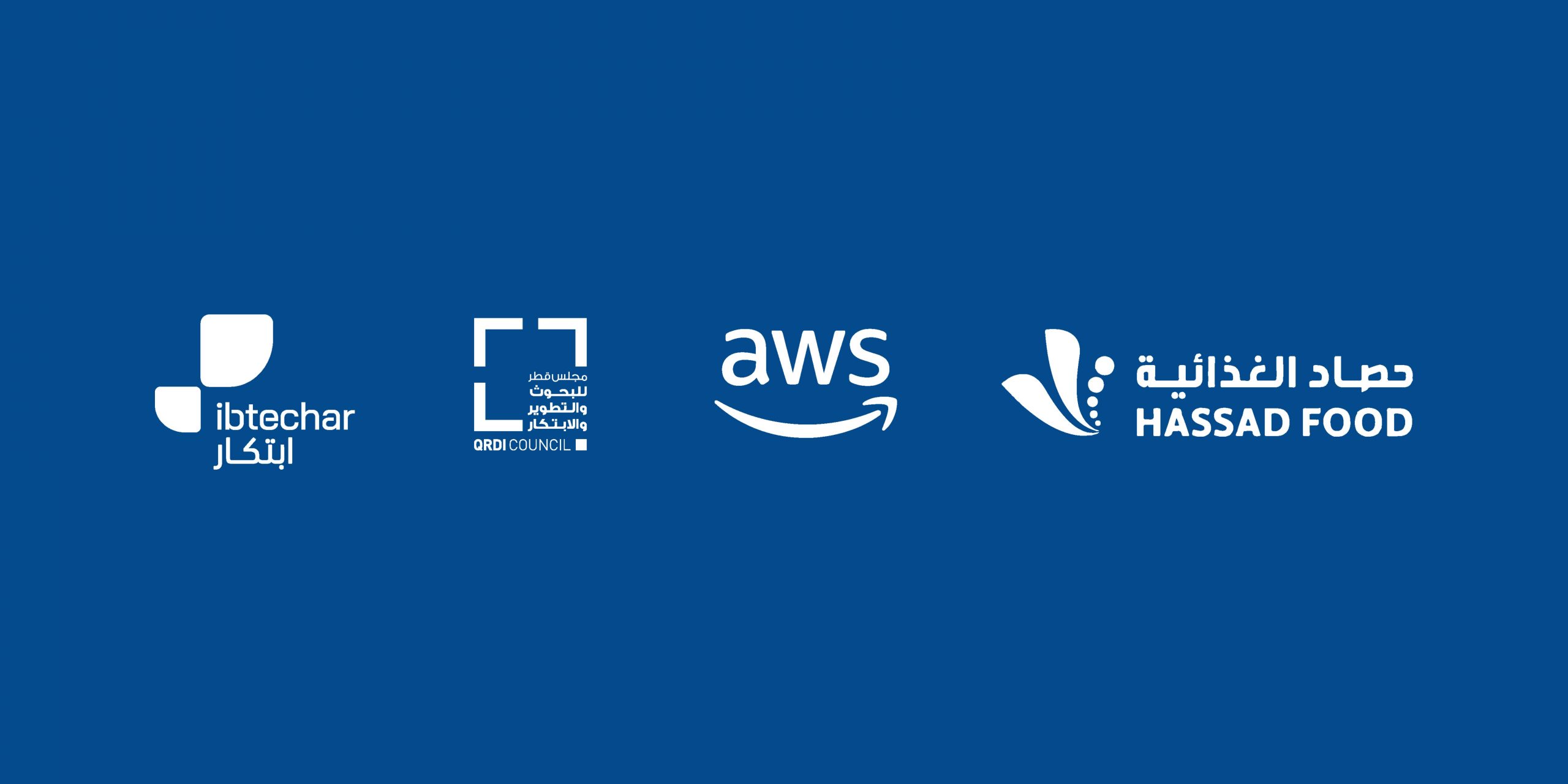
OVERVIEW
In today’s global landscape, the only constant is change. Government entities and companies are facing uncertainty and pressure at an unprecedented and fast-paced rate. From rising costs to rapidly evolving market dynamics, there is an increasing need to gear up and adopt the right tools and procurement frameworks to effectively manage expenses, optimize cash positions, and navigate disruptions.
When faced with uncertainty and challenges, the need for innovation becomes not only paramount but the new norm. Rethinking every aspect of the procurement function becomes key to proactively leading the way through uncertainty and out of any crisis.
Qatar found itself navigating a unique and complex situation as it dealt with the impact of the pandemic and blockade. However, these two factors acted as catalysts that propelled all stakeholders to innovate for the future, emerging stronger and more resilient by embracing innovation.
This whitepaper looks at the approaches adopted along with key outcomes and learnings.
APPROACH
As an innovation partner committed to driving sustainable growth and facilitating successful transformations, Ibtechar held a roundtable on the topic: ‘Leveraging Procurement Frameworks for Innovation.’ Leaders from Qatar Research Development and Innovation Council, Amazon Web Services, Hassad Food, and many others all contributed to shed light on industry best practices and the crucial role of adapting progressive procurement processes to foster innovation in the ecosystem.
Before understanding how key parties adopted procurement innovation, it is important to look at and challenge the history of the procurement process. The way procurement worked in the past no longer works today.
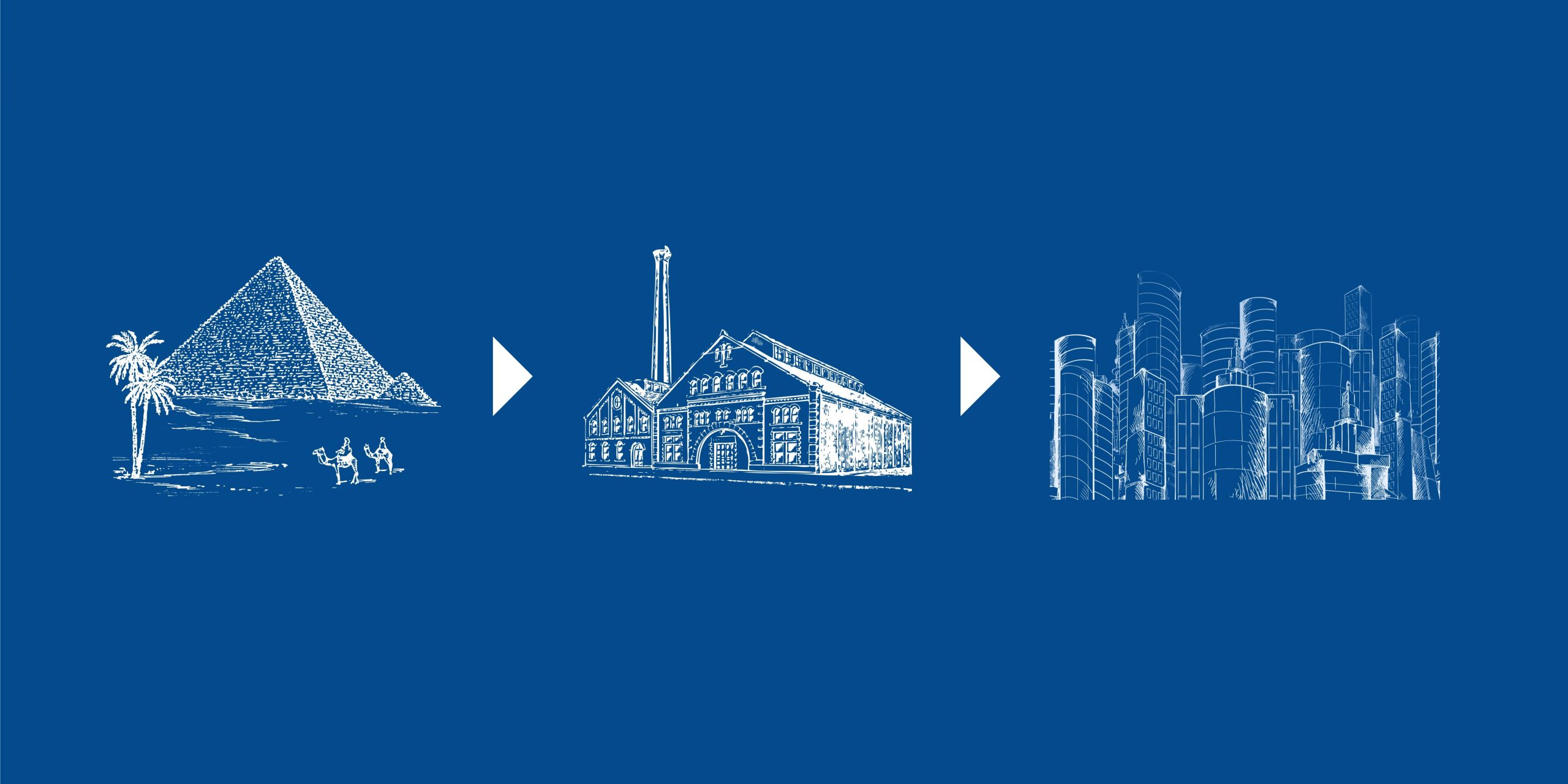
Think of the Pyramids in Egypt, where materials were sourced to fulfill this monumental project’s requirements. This required a lot of control. Following that, procurement gradually became a strategic function during the Renaissance era, supporting nations during conquest. Then, with the industrial revolution came the emphasis on mass production and the role of procurement in optimizing efficiency. Finally, by the 20th century, particularly with digital technology and telecommunications, procurement became more rigid within organizations.
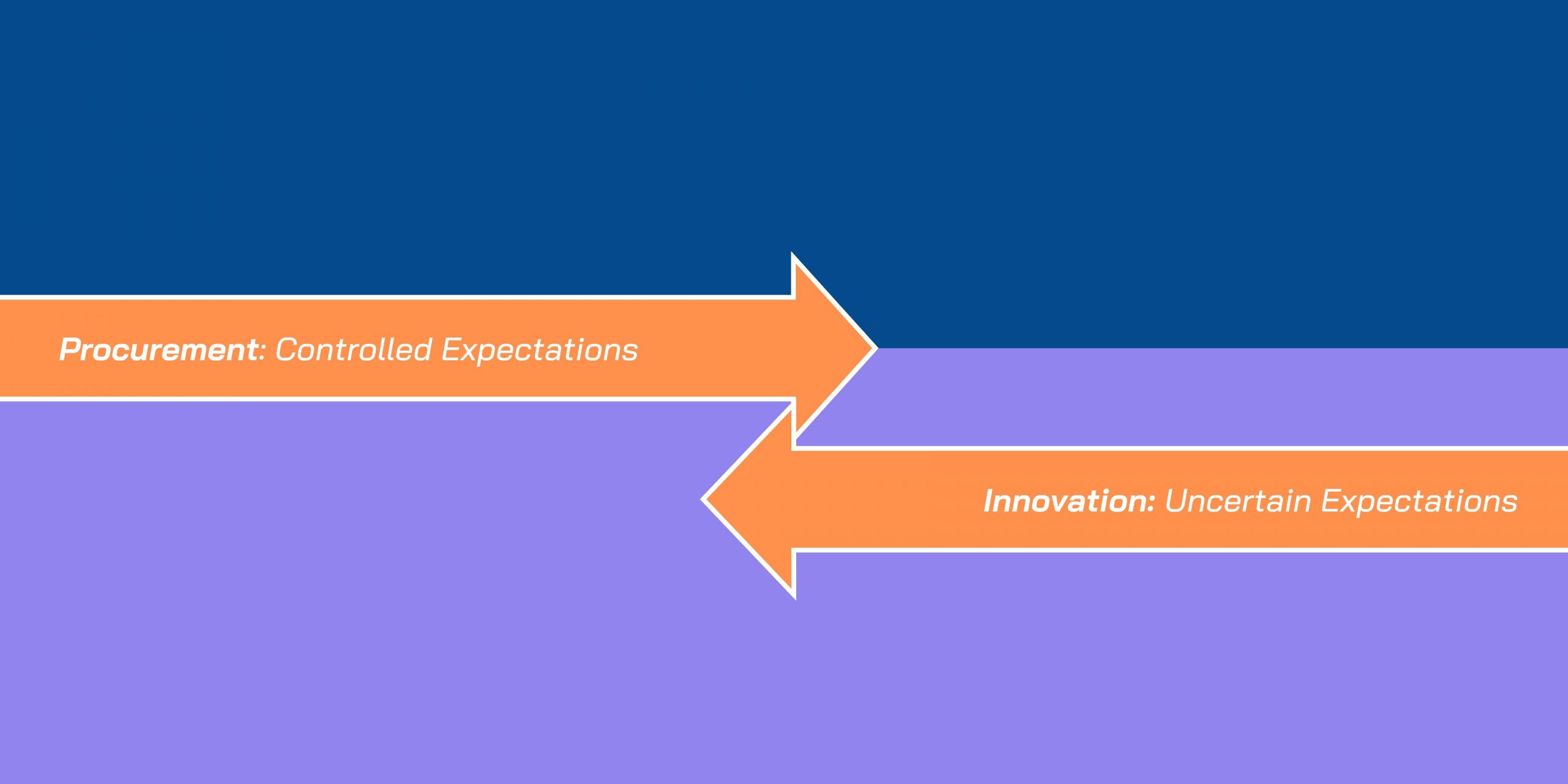
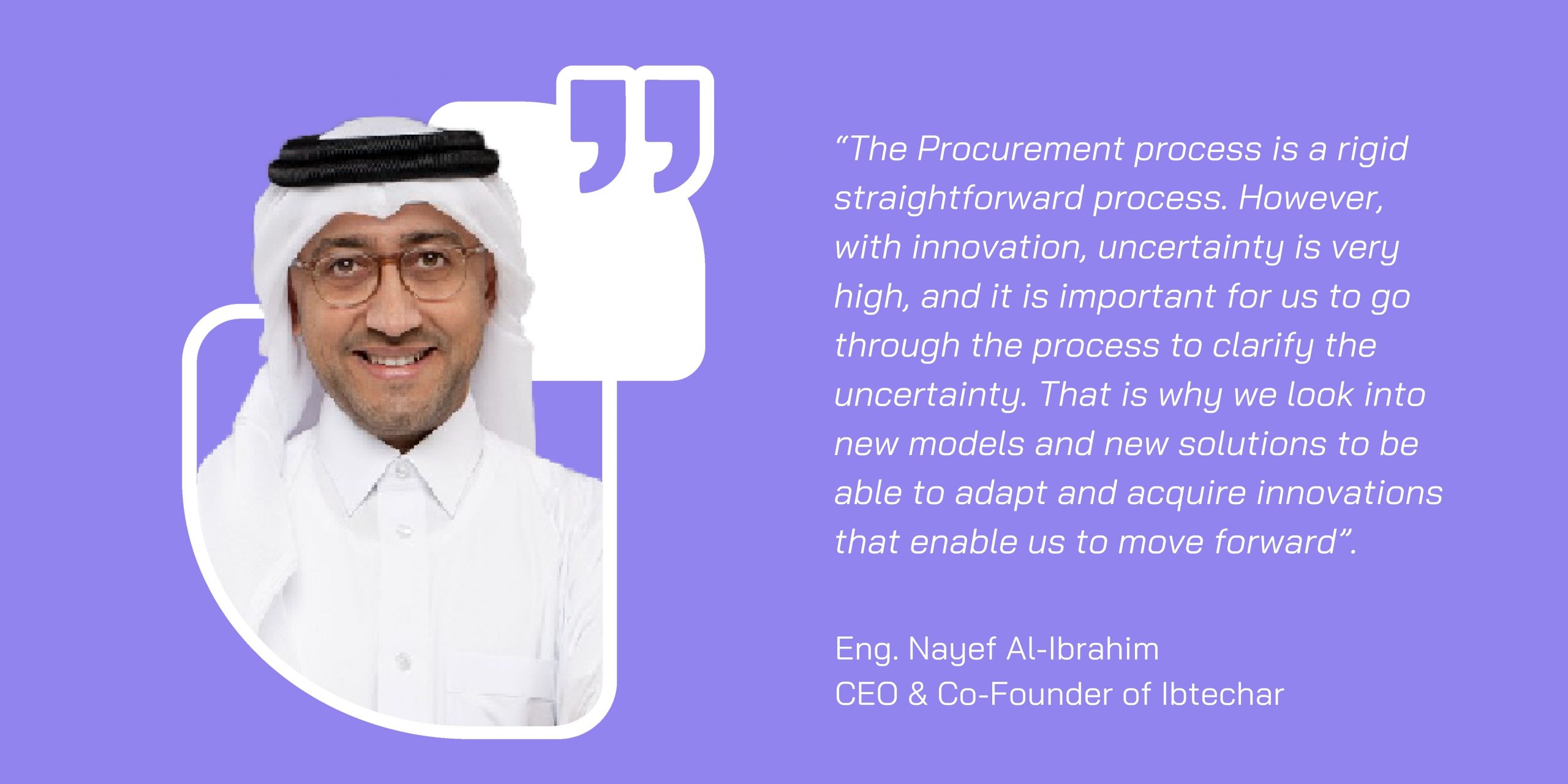
OUTCOMES
Ibtechar: The Case of Innovation
As the state of Qatar moves towards sustainable growth, it has successfully invested in world-class infrastructure over the past two decades. The focus has now shifted towards embracing innovative solutions and services to further propel the nation forward.
The country recognizes that sustained progress lies not only in physical infrastructure but also in harnessing the power of disruptive technologies, groundbreaking ideas, and collaborative partnerships. Businesses are now taking note of this shift and have started to act.
An organization in Qatar sought to leverage innovation and keep up with the time through a classical procurement process and launched a call for tenders from the market. The organization embarked on a project to shift from labor-intensive facade cleaning to robotics. The procurement process commenced with a tendering format, accompanied by clarification sessions between the client and vendors. Challenges arose as the scope was discussed. As the process continued, timelines were further extended, resulting in a one-year delay in experimenting with innovation. This has an adverse impact on the organization and, ultimately, the nation’s growth and innovation potential.
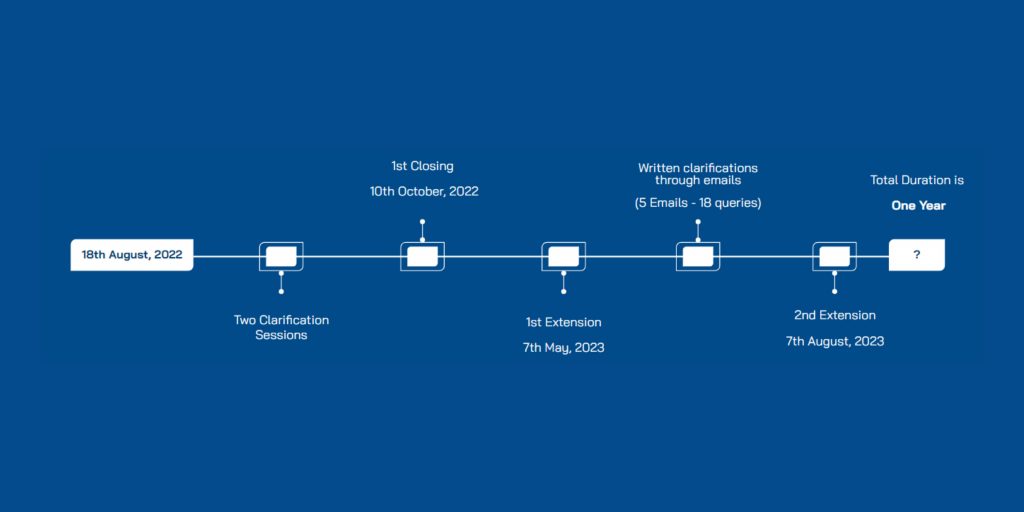
One has to ask, does a rigid tendering process like this serve innovation? Clearly, the answer is no. In this example, the procurement process was demanding certainty; however, the problem needs a solution that has not yet been tried out. Therefore, all bidders were not able to fulfill the tender requirements.
With an apparent misalignment between procurement’s-controlled expectations and innovation’s uncertain nature, the question remains: “How can traditional procurement principles unleash innovation amidst unconventional ideas?”
Ibtechar firmly believes that businesses must push boundaries and challenge the status quo when it comes to the tools and vehicles utilized in procurement. Instead of engaging in repetitive procurement discussions, there is a need to shift focus towards establishing an agile and progressive procurement processes. Collaboration becomes pivotal as businesses strive to work together. By embracing this approach, the ecosystem will enable innovation and drive meaningful progress.
QRDI: Research-Driven Partnerships are Key
Qatar Research Development and Innovation Center (QRDI) conducted a comprehensive analysis of corporates worldwide to identify best practices in adopting innovation. This benchmarking process considers regional and global perspectives, realizing that corporate innovation typically falls into one of three models: build, partner, or acquire.
The partner model closely aligns with the practices and nature of doing business locally. Collaboration with external partners, such as startups, universities, and research institutions, expands reach and provides access to a global pool of innovators. Businesses can tap into diverse expertise, co-create solutions, and accelerate innovation by forging strategic partnerships.
The Open Innovation Initiative by QRDI represents an alternative approach to traditional procurement by building such partnerships. This is done by identifying unique challenges, opening facilities for piloting new technologies, and creating mechanisms for co-development.
The main objective of implementing open innovation across large local enterprises is to establish a fair and transparent way of working with innovators without being bound by the rigid procurement process.
Innovation requires strong leadership support, buy-in, and champions within organizations to succeed. A successful example of partnership and leadership buy-in is evident in the collaboration with Hassad.
Hassad: A Proactive Business and People Management Approach in the Face of Crisis
Hassad, the investment authority company focused on food security in Qatar, has made significant strides in the past five years; responding to challenges posed by the blockade has propelled them to drive transformative changes in the industry. They are a great case study, and their innovative reaction to uncertainty and the circumstances they faced could present great learnings to other businesses facing uncertainty.
In the face of the blockade, Hassad swiftly adapted to ensure a continuous supply of essential commodities. Challenging the notion that “this is not possible” Hassad understood that a traditional procurement process poses certain challenges. They took a proactive business and people management approach and uncovered innovative solutions to complex problems.
Hassad reengineered their procurement process, and strategically expanded local production capabilities by minimizing approval gates and built a strategy based on data, insights and lean operations. By eliminating redundant steps and reducing irrelevant requirements, significant improvements were achieved. These efforts resulted in a remarkable reduction of the procurement process time by an impressive 30 – 35% and increased production capacity by 30% in the poultry sector while significantly increasing vegetable production.
Additionally, another notable progressive practice implemented by Hassad is the adoption of the Open Innovation Program. This program provided Hassad with a safe and conducive environment to explore and test innovative ideas that may not be suitable within a traditional procurement process.
Hassad’s journey demonstrates the need for continuous reevaluation, agility, and adopting a proactive business approach. This involves changing perspectives, learning, partnering with experts, and taking action.
AWS: Adopting Digital Technology in the Procurement Process Is Key
Digital transformation has been instrumental in Governments, enabling a more efficient and innovative approach. AWS’ application of digital technology with some GCC governments provides a compelling case for the power of their technology. AWS Marketplace, known for its seamless user experience, has inspired a shift towards leveraging advanced technological solutions in the industry.
By leveraging AWS Marketplace and similar centralized platforms, businesses can revolutionize their procurement processes by adopting innovative procurement tools. These platforms offer a centralized approach that has allowed for reduced procurement risks.
Businesses can evaluate software offerings and engage in trials before making a purchase, minimizing the risk of investing in software that may not meet their requirements, ultimately optimizing spending and maximizing the use of funds.
Implementing electronic platforms and centralized marketplaces, exemplified by AWS Marketplace, has provided organizations with faster purchasing processes and diverse software options, unleashing procurement’s full potential through technology-driven solutions.
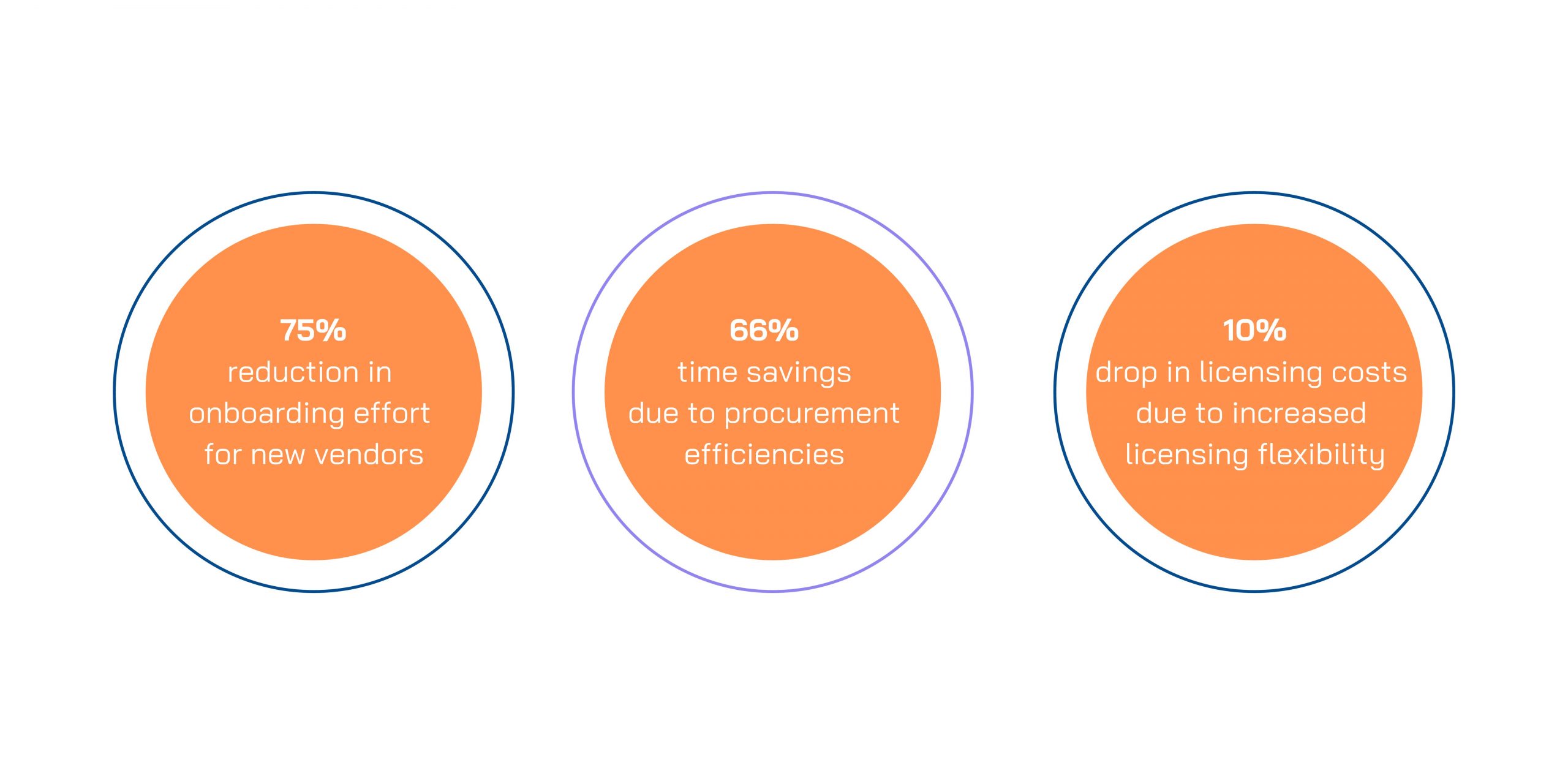
The Way Forward: Re-Imagining the Procurement Process
This white paper explored the importance of leveraging procurement processes to foster organizational innovation. Embracing innovation is a critical driver of success. Looking at Hassad’s case study and the views from industry leaders, it is evident that in order to adopt progressive procurement processes, a number of actions need to be taken.
1- Reimagine the Procurement process:
There is a need to adopt a holistic approach that looks at eliminating redundant steps within the procurement process that may include unnecessary requirements, reducing approval gateways while increasing data entry to make informed decisions.
2- Adopting Open Innovation as a vehicle:
Harnessing the power of Open Innovation and leveraging government support, allows businesses to tap into a wider pool of innovative ideas and solutions from external sources.
By embracing open innovation, businesses can benefit from the expertise and creativity of external partners, fostering collaboration and driving forward-thinking procurement practices.
3- Consider AWS marketplace for software solutions:
Businesses can leverage AWS Marketplace as a valuable resource for software solutions, gaining access to a diverse range of innovative applications from trusted vendors, streamlining the procurement process. Additionally, adopting technology and a digital approach enhances competition, and ensures fair and equal opportunities for suppliers.
Leveraging procurement frameworks to foster innovation is a strategic imperative and a pathway to sustainable growth and competitive advantage.
The critical question is this: How can we drive practical innovation every day without waiting for a crisis to push us to transform?
